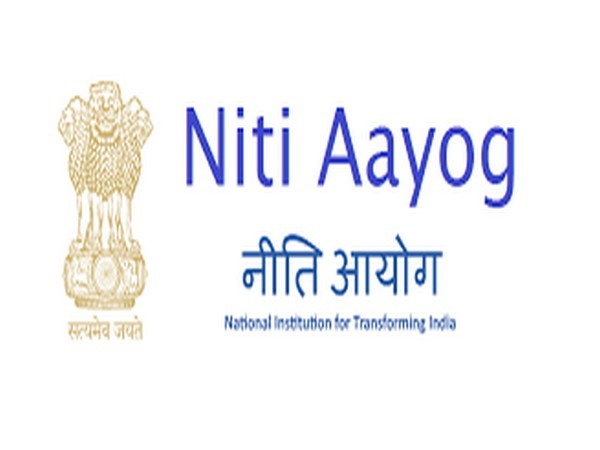India Charts Bold AI Future: NITI Aayog Pushes for AI-Ready Datacentre Revolution
States were encouraged to benchmark themselves not just against each other, but against emerging global AI investment destinations like Vietnam, the UAE, and Indonesia.

- Country:
- India
Recognizing the pivotal role artificial intelligence will play in shaping India’s economic and strategic trajectory, the NITI Aayog’s Frontier Technology Hub convened a landmark workshop on May 8, 2025, with a singular focus: accelerating investment in AI-ready datacentres across Indian states. This high-level event brought together senior policymakers, central ministries, and industry stalwarts to deliberate on transforming India into a global powerhouse for AI infrastructure.
Bridging the Compute Gap: India’s Urgent Digital Imperative
India, despite being one of the world’s largest digital economies—generating nearly 20% of the world’s data—still accounts for a meager 3% of global datacentre capacity. With the surge in AI adoption across critical sectors like healthcare, agriculture, defense, and logistics, this disparity has emerged as a bottleneck threatening to derail India’s AI ambitions.
The workshop emphasized that compute capacity is now the foundation of modern economies. Without high-performance datacentres, the promise of AI and other frontier technologies will remain unrealized. Participants underscored the need for India to scale up its compute infrastructure swiftly, efficiently, and sustainably.
Rethinking AI Infrastructure: Beyond Real Estate
In a shift from traditional land-centric approaches, the workshop urged Indian states to adopt a new development paradigm grounded in access to clean energy, reliable digital infrastructure, and robust policy frameworks. Leaders stressed that land availability alone will not suffice to attract AI investments. Instead, the creation of holistic AI ecosystems—integrating compute power, skilled talent, and renewable energy—will determine India’s global competitiveness.
Six Pillars for AI-Ready States
A central part of the dialogue focused on what it takes to make Indian states “AI datacentre-ready.” Six critical pillars were identified:
-
Land – Strategically located, low-cost, disaster-resilient land parcels.
-
Power – Reliable, clean, and scalable energy sources including solar, wind, and hybrid models.
-
Network – High-bandwidth, low-latency connectivity through robust fiber and 5G networks.
-
Compute – Access to GPU clusters and high-performance computing for AI workloads.
-
Talent – A skilled workforce trained in AI, data science, and infrastructure management.
-
Policy – Streamlined single-window clearances, tax incentives, and proactive regulations.
States were encouraged to benchmark themselves not just against each other, but against emerging global AI investment destinations like Vietnam, the UAE, and Indonesia.
Energy and Policy at the Forefront
A key highlight of the workshop was the projected doubling of global energy demand from datacentres and AI by 2026. India, with its leadership in renewable energy and ambitious green energy goals, was positioned as having a natural edge. Discussions explored how states could align with central ministries—including MNRE, Power, and Finance—to facilitate sovereign and hyperscale AI investments.
The need for coordinated regulatory reforms and energy-infrastructure synergies was repeatedly echoed. Panelists urged policymakers to pre-approve power and connectivity norms in datacentre clusters to drastically reduce setup timelines.
Visionary Leadership and Strategic Insights
Delivering the keynote address, Shri B.V.R. Subrahmanyam, CEO of NITI Aayog, laid out a compelling vision:
“India has a once-in-a-generation opportunity to become a global AI datacentre hub. With our clean energy leadership, unmatched tech talent, and strong policy momentum, we are well-positioned to deliver the world’s greenest and most cost-effective AI compute. But the competition is global. States must stop thinking only in terms of land and start thinking in terms of AI ecosystems — anchored in energy, innovation, and execution.”
Other distinguished attendees included Shri Rajiv Gauba, Member, NITI Aayog; Ms. Debjani Ghosh, Distinguished Fellow, NITI Aayog; and Mr. Romal Shetty, CEO of Deloitte South Asia. Deloitte served as the official knowledge partner, supporting the workshop’s analytical and strategic direction.
Launch of “Accelerating AI Infrastructure Investments in India” Report
At the event, NITI Aayog launched a seminal report titled “Accelerating AI Infrastructure Investments in India.” The report offers a detailed blueprint for unlocking national-scale investments and lays out a roadmap to address gaps in infrastructure, talent, and regulatory frameworks.
The publication outlines key policy interventions, global case studies, and investment models that could serve as templates for Indian states seeking to attract and scale AI infrastructure.
Towards a Future-Ready AI Economy
The May 8th workshop is part of a broader initiative by the NITI Aayog’s Frontier Tech Hub, which aims to foster innovation, build policy awareness, and promote technological readiness across ministries and state governments. As the global race for AI supremacy intensifies, India is seeking to leap ahead—not only as a user of AI but as a creator of the infrastructure that powers it.
With sustained political will, coordinated state-centre efforts, and private sector partnerships, India could soon lead the world in building green, inclusive, and globally competitive AI ecosystems—turning its demographic and digital advantage into global leadership.
ALSO READ
Britain Strengthens Clean Energy with Surge in Offshore Wind Funding
European Stocks Boosted by Bayer and Clean Energy Surge
MTAR Technologies Secures ₹34 Crore Orders in Clean Energy and Aerospace
Brazil Balances Oil Exploration and Clean Energy Transition
House Bill Threatens Clean Energy Progress with Sweeping Tax Credit Cuts










